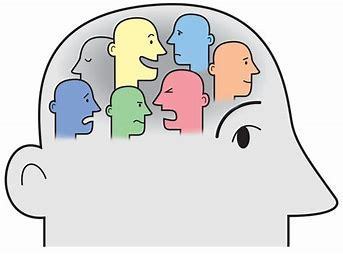
How Mastering Internal Family Systems Can Help You Connect with Your Inner World
In my recent training on mastering Internal Family Systems (IFS), I discovered a powerful tool that has not only enriched my practice as a counsellor but has also opened new pathways for clients to understand themselves better. IFS is a therapeutic approach that helps individuals explore their inner world as a system made up of various "parts" that influence our thoughts, emotions, and behaviours. This journey into the self allows for deeper healing and personal growth.
What is Internal Family Systems?
IFS, developed by Dr. Richard Schwartz, operates on the idea that we all have multiple parts within us, each with its own voice and agenda. These parts can be seen as sub-personalities—some are protective, others hold pain, and some may embody wisdom. The key is understanding that all parts have good intentions, even if their strategies cause distress.
Through IFS, I help clients identify and interact with their parts, creating a relationship with them. By doing so, they learn to manage their emotions, resolve internal conflicts, and heal old wounds. It's an empowering process because clients realize they are not controlled by their emotions or thoughts but have the ability to guide and heal their internal system.
How IFS Training Enhances My Counseling Practice
The IFS training has given me new ways to help clients understand their internal experiences and patterns. Here’s how it works:
-
Creating a Safe Space for Exploration
One of the first steps in IFS is creating a space of curiosity and non-judgment, both of which are fundamental in my counselling sessions. With IFS, clients learn to approach their internal world with the same openness. This shifts the narrative from feeling overwhelmed by emotions to becoming an observer of those emotions. As a result, they feel more in control of their emotional responses. -
Identifying Protective Parts
Often, when people experience anxiety, anger, or sadness, they view these emotions as problems to be eliminated. IFS teaches that these feelings are typically protectors trying to shield more vulnerable parts. For example, a client might feel angry when they’re actually protecting a more vulnerable, wounded part of themselves. By identifying and acknowledging these protectors, clients can understand their purpose and release some of the emotional intensity around them. -
Accessing the Core Self
The ultimate goal of IFS is to help clients connect with their core Self—the wise, calm, compassionate part of themselves that can lead their internal system. Once the Self takes the lead, other parts begin to trust it, leading to greater harmony within the person. In therapy, helping clients access this part of themselves fosters self-compassion, resilience, and a more balanced outlook on life. -
Healing Wounded Parts
Some parts of us carry deep pain from past experiences, often from childhood. IFS provides a framework for healing these wounds by allowing the Self to build trust with these vulnerable parts. In our work together, I help clients form relationships with their wounded parts, allowing them to express their pain in a safe and supportive environment. This not only relieves suffering but also integrates those parts into a healthier whole. -
Empowering Clients with Self-Leadership
Perhaps the most transformative aspect of IFS is its emphasis on self-leadership. By recognizing and working with their internal parts, clients begin to trust their own ability to navigate life’s challenges. They move from feeling fragmented or reactive to feeling grounded and confident in their ability to manage emotions and relationships.
Why This Matters
Internal Family Systems goes beyond traditional talk therapy by giving clients a structured way to understand their emotions and inner conflicts. It empowers them to cultivate compassion for all parts of themselves—even the ones they’ve been fighting against for years. By helping clients interact with these parts from a place of curiosity, I can guide them toward deeper healing and self-awareness.
This recent training has been eye-opening for both my practice and my clients’ journeys. Understanding ourselves as a system of parts brings clarity and compassion to the often complex and confusing world of human emotions. If you’ve ever felt like you’re being pulled in different directions internally, or like some parts of you are working against you, IFS can offer a way forward that’s healing, empowering, and ultimately transformative.
If this resonates with you, or you’re curious about how Internal Family Systems could help in your own healing, I’d love to explore it with you. It’s an exciting new path for personal growth that I believe could benefit many.
.JPEG)
.JPEG)





